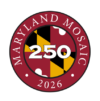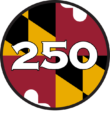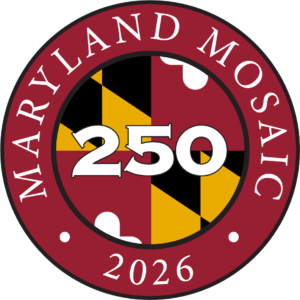First Peoples
The Mosaic Project collects national American firsts that have occurred in Maryland after the founding of the United States in 1776, although the history of this place predates the founding of the nation. Selecting only those firsts that occurred after 1776 is a focus off the 250th United States anniversary. Indigenous peoples have stewarded this lands and waters from roughly 11,000 to 12,000 years prior to the arrival of John Smith, when most Maryland textbooks begin. As a settler colony, the social structures, agricultural and industrial practices, extensive human slavery, religious frameworks and the increasing diversity of our population became entrenched during the late 17th and all of the 18th centuries. The United States’ national foundations were laid there.
As the descendants of the colonists and settlers who practiced their values of land ownership, society, economy, religion, ambitions and philosophies, we as Marylanders acknowledge that we were not invited on this land nor have we treated it with respect and care. We have assumed ownership of lands that once were home to the first peoples.
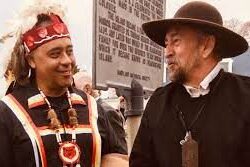
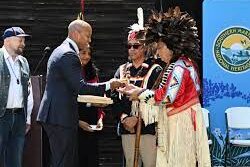
Who then were the actual first peoples in Maryland?
Today they are known as the Pisacataway Indian Nation, Piscataway-Conoy Tribe, Cedarwille Band of Piscataway Indians, Choptico Band of Indians (all of Southern Maryland), Accohannock Indian Tribe, Nanticoke Tribe, Pokomoke Indian Nation, Nause-Waiwash Band of Indians, (all of the Eastern Shore), the Susquehannock (coming from Pennsylvania) the Youghiogheny River Band of Shawnee (Western counties). The Maryland Indians, even as sovereign nations, are essentially in a diaspora as they are without central land ownership. Members of tribal nations not Indigenous to Maryland have also made and make it their home. We acknowledge the many Native peoples who contribute to the rich cultural heritage of the place now known as Maryland.
